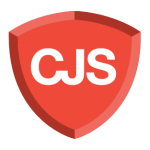MENTAL HEALTH ASSESSMENT
ASSESSMENT LIBRARY
The first step in overcoming any mental health disorder is understanding and recognizing the problem. To help you understand what you might be going through we have provided multiple free assessments that are nationally recognized.
The assessment results cannot substitute a full evaluation by a healthcare professional, and should only be used as a guide to understanding the potential health issues involved.
EXPLORE THE AVAILABLE SELF ASSESSMENTS
DSM - Cross Cutting Assessment
The DSM-5 Level 1 Cross-Cutting Symptom Measure is intended to help clinicians identify additional areas of inquiry that may have significant impact on the individual’s treatment and prognosis. In addition, the measure may be used to track changes in the individual’s symptom presentation over time. This adult version of the measure consists of 23 questions […]
Posttraumatic Stress Symptoms Assessment - Adult
The National Stressful Events Survey PTSD Short Scale (NSESSS) is a 9-item measure that assesses the severity of posttraumatic stress disorder in individuals age 18 and older following an extremely stressful event or experience. The measure was designed to be completed by an individual upon receiving a diagnosis of posttraumatic stress disorder (or clinically significant […]
GAD - 7 - Anxiety Assessment
The GAD – 7 is intended to help clinicians identify and screen for the presence and severity of anxiety. The measure may be used to track changes in the individual’s symptom presentation over time. The results of the GAD – 7 may be used to make a anxiety diagnosis according to DSM-IV criteria and takes […]
Repetitive Thoughts and Behaviors Assessment - Level 2 - Adult
The DSM-5 Level 2 – Repetitive Thoughts and Behavior Adult measure is an adapted version of the 5-item Florida Obsessive-Compulsive Inventory (FOCI) Severity Scale (Part B) that is used to assess the domain of repetitive thoughts and behaviors in individuals age 18 and older. The measure is completed by an individual prior to a visit […]
Mania Assessment - Level 2
The ASRM (Altman Self-Rating Mania Scale) is a 5-item self-rating mania scale designed to assess the presence and/or severity of manic symptoms. The measure is completed by the individual prior to a visit with the clinician. If the individual receiving care is of impaired capacity and unable to complete the form (e.g., an individual with […]
Sleep Disturbance - Level 2 - Adult
The DSM-5 Level 2—Sleep Disturbance—Adult measure is the 8-item PROMIS Sleep Disturbance Short Form that assesses the pure domain of sleep disturbance in individuals age 18 and older. The measure is completed by the individual prior to a visit with the clinician. If the individual receiving care is of impaired capacity and unable to complete […]
MDQ - Mood Disorder Questionnaire
The Mood Disorder Questionnaire (MDQ) was developed by a team of psychiatrists, researchers and consumer advocates to address the need for timely and accurate evaluation of bipolar disorder. Clinical Utility: The MDQ is a brief self-report instrument that takes about 5 minutes to complete.n This instrument is designed for screening purposes only and is not […]
Somatic Symptom Assessment - Level 2 - Adult
The DSM-5 Level 2—Somatic Symptom—Adult measure is an adaptation of the 15-item Patient Health Questionnaire Physical Symptoms (PHQ-15) that assesses the domain of somatic symptoms. The measure is completed by the individual (or his or her informant) prior to a visit with the clinician. If the individual is of impaired capacity and unable to complete […]
PHQ - 9 - Depression Assessment
The PHQ – 9 is intended to help clinicians identify and screen for the presence and severity of depression. The measure may be used to track changes in the individual’s symptom presentation over time. The results of the PHQ-9 may be used to make a depression diagnosis according to DSM-IV criteria and takes less than […]
Substance Abuse Assessment - Level 2 - Adult
The DSM-5 Level 2—Substance Use—Adult is an adapted version of the NIDA-Modified ASSIST. The 15-item measure is used to assess the pure domain of prescription medicine, and illicit substance use in adults age 18 and older. It is completed by the individual prior to a visit with the clinician. If the individual receiving care is […]
